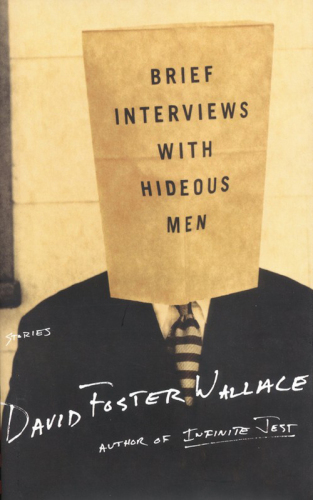
Brief Interviews with Hideous Men
Stories
کتاب های مرتبط
- اطلاعات
- نقد و بررسی
- دیدگاه کاربران
نقد و بررسی

May 31, 1999
Wallace, the young turk author whose ubernovel, Infinite Jest, was way too bulky for audio adaptation, throws himself gamely into the medium now, reading from his short fiction collection. In this audio debut, Wallace delivers his spry, satiric exercises in a sure-voiced, confident baritone. With the skill of a veteran narrator, he adeptly retains footing as he navigates his complex and wordy prose. His literary grab-bag trademarks include off-kilter descriptive passages, ponderous lists and footnotes, and a large portion of the tape is devoted to a one-sided interview with a psychotic sexual stalker. These odd tropes come across with humor, even tenderness, in Wallace's sensitive reading. He conveys the earnestness of a young, hardworking writer, eager to make his eccentric vision accessible through its spoken presentation. It's this sense of Wallace's strong desire to be appealing that will keep the listener with him throughout his sometimes difficult material. Simultaneous release with the Little, Brown hardcover.

May 1, 1999
Following the success of his massive, much-acclaimed novel, Infinite Jest (LJ 1/96), Wallace returns to fiction with a similarly dense, cerebral, and self-reflexive set of short works. Wallace's characters are psychological grotesques, emotionally detached and sometimes, as with the na ve young wife in "Adult World," finding an odd freedom in their distance. While the inauthenticity of male/female relations is a recurrent motif, the central theme is the nature of narrative itself, as in "Octet," where the author turns self-reflexiveness on itself, creating something that might be termed meta-meta-fiction. Fans of Thomas Pynchon and Donald Barthelme will find comparable challenges here. For libraries where Infinite Jest was popular.--Lawrence Rungren, Merrimack Valley Lib. Consortium, Andover, MA
Copyright 1999 Library Journal, LLC Used with permission.

May 1, 1999
The structure of the short story intrigues and piques Wallace, prompting him to subvert it. He imitates academic writing by attaching substantial footnotes to "The Depressed Person," thus creating a contrapuntal story within the story. "Datum Centurio" is a set of definitions of the word "date," purportedly found in "Leckie & Webster's Connotationally Gender-Specific Lexicon of Contemporary Usage," copyright 2076. The title story, appearing in four installments, consists of a string of monologues in which men talk about women. Sex in its more disturbing modes is the collection's underlying theme. A man listens intently as a woman describes being raped. Another man goes into explicit detail in his rant against men's sexual selfishness, and a woman worries that her husband doesn't enjoy their lovemaking. Like Stephen Dixon, Wallace is adept at generating streams of consciousness, rendering mental states in almost psychedelic detail. And he practices this art to perfection in "Forever Overhead," in which a 13-year-old boy is nearly overwhelmed by sensory overload while awaiting his turn at the high dive. ((Reviewed May 1, 1999))(Reprinted with permission of Booklist, copyright 1999, American Library Association.)

























دیدگاه کاربران